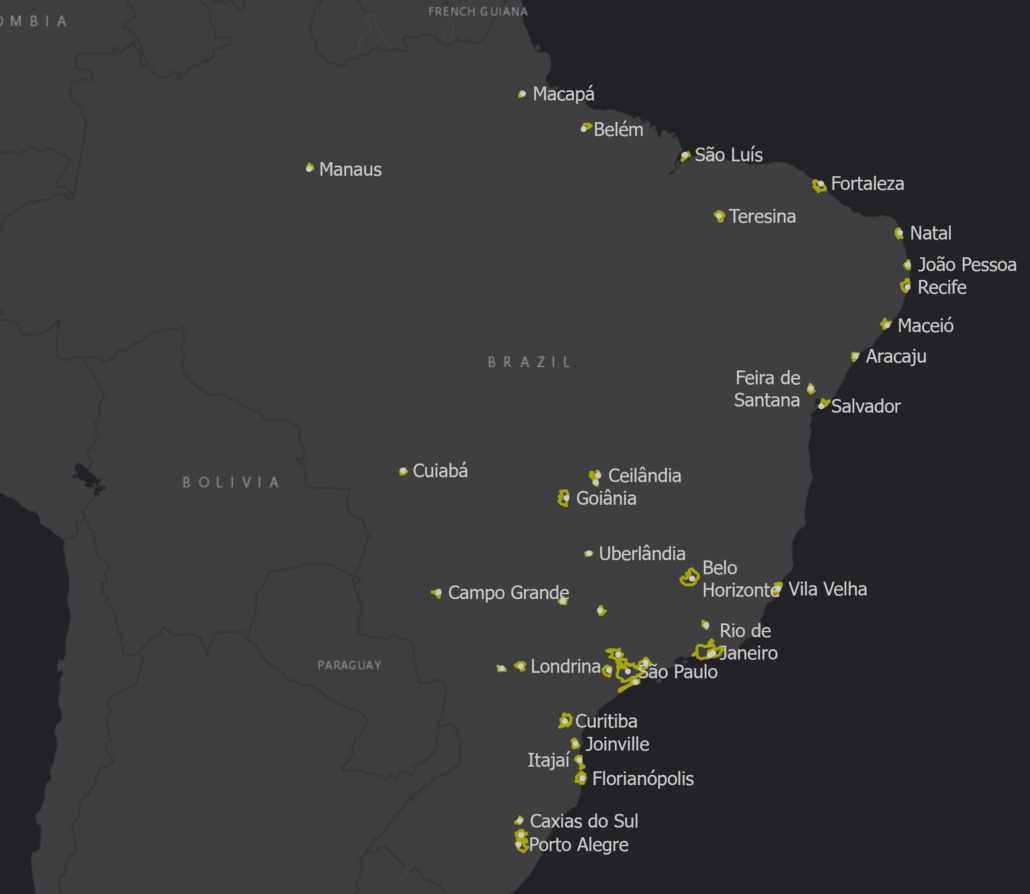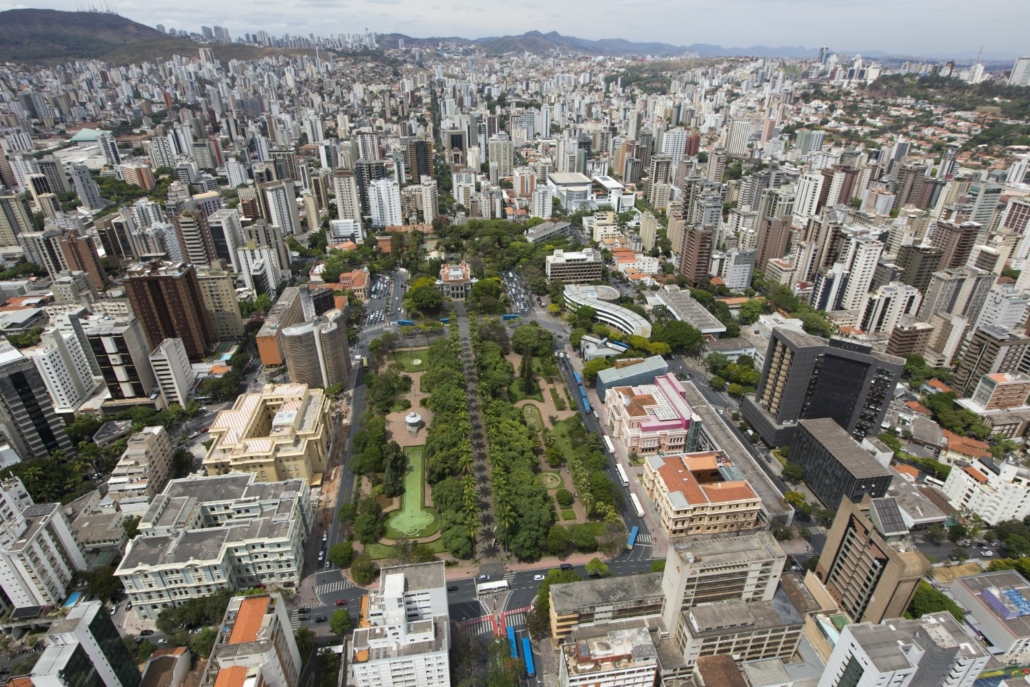Brazil’s population in 2010 was 196 million. About 2 in 5 Brazilian lives in the 40 largest cities.
| Data Overview | Summary Statistics | ||
|---|---|---|---|
| # of cities | 40 | Average city population (in millions) | 2 |
| Year of data | 2010 | Average density | 2033 |
| Average population of base geographic unit | 686 | Average population-weighted density | 11450 |
| Income definition | Fraction of national minimum wage per household capita Lowest category: 0 – 1/8 MW Highest category: More than 10 times MW | Average income segregation (from 0, lowest, to 100, highest) | 15.2 |
| # of income categories | 9 | Income inequality (80/20 income percentile ratio) | 5.4 |
| % of population living in central city (5km radius from city hall) | 37.8 |
Brazilian data are from the Instituto Brasileiro de Geografia e Estatística
Income is from the Census household survey and is collected as follows:
Income information is collected for each household in permanent and improvised private households. The total monthly income of the household is divided by the number of household number. Household income per capita is reported as a fraction of the legislated national minimum wage. (data and dictionary available here)
Geographic data are based on the setor censitário.


